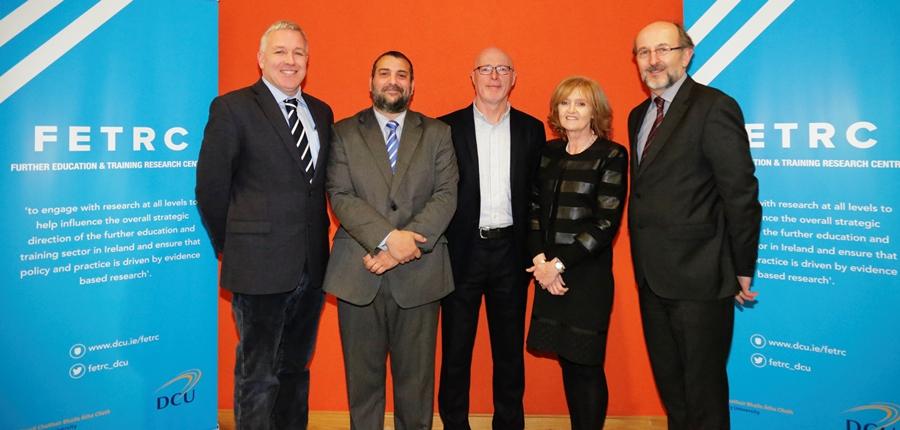

Where the high road meets the low road - Policy, practice and research in FET
On Tuesday, (February 9th) DCU's Further Education & Training Research Centre (FETRC), within its’ new Institute of Education conducted the first in a series of public lectures designed to raise awareness of the future role of Further Education & Training in the State.
This marked the establishment of the Institute’s Further Education & Training Research Centre (FETRC). In this inaugural lecture, Adjunct Professor Dermot Stokes reflected the evolution of FET in Ireland, the influences and factors that shaped that evolution and issues that have influenced policy, practice and research both in FET itself and at its intersections with second level and higher education. He proposed that wider social and cultural processes should inform present concerns regarding participation and outcomes. Dr Stokes also argued that institutional and system memory are critically important in understanding the FET landscape and that that new structural and institutional arrangements offer a key opportunity to build a comprehensive knowledge base through research that is both rigorous and relevant.
Important developments in FET in Ireland suggest the need to develop research capacity capable of informing innovation across the sector at both a regional and national level. The event was full to capacity with over 150 specially invited guests including Dr Gary Granville, NCAD, Pat O’Mahoney, ETBI, Colette Harrison, QQI, Dr Ann Campbell, President of DkIT as well as policy makers, practitioners and students. Speaking at the launch were DCUs President Professor Brian MacCraith, Professor Joe O’Hara, Fiona Hartley, Executive Director of SOLAS and Dr Justin Rami Director of FETRC. Dr Rami said, ‘Part of the work of FETRC examine how practice can influence policy. Using evidenced based research should be a significant driver of policy development. By establishing this new research Centre (FETRC) believe that the time is right to raise research above the current platforms, and ensure that all voices are heard’
